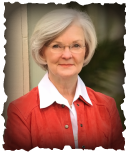 If your church's Friendly Factor were rated on a scale of 1-10, what do you think you would score? For many of us, we might put ourselves squarely in the middle, but in this case, average just doesn't meet the standard of Hebrews 13:1. Time and time again, the Bible calls God's people to offer hospitality. Welcoming visitors is essential. A visitor's eternity may be at stake. When a visitor enters our church, we may have no idea what has brought them. Some come because they have experienced a tragedy. Others are expecting a miracle. Some have begrudgingly accepted an invitation. In each case, their visit to our church might be their first or last chance to hear about the hope of Christ. We can't let that opportunity pass just because we are shy around new people or busy fulfilling our own responsibilities. Consider what Steve Trader, a licensed professional counselor with Pathways Professional Counseling, says: "There is no question that many churches need to make a concerted effort to be more friendly to visitors. When I went off to college I learned this first hand. I had been so used to my home church but being in a new setting was a challenge. After visiting several churches I finally settled on the one that really acted like it mattered to them that I came. They were by far the most friendly." Trader says that a pastor often sets the tone for the congregation. A welcoming pastor will inspire others to be welcoming as well. Trader says it this way: "So often, the local congregation takes on the personality of the pastor. I have seen this to be true time and again. If the pastor has been at the church for a sufficient period of time and is warm and friendly the congregation begins to catch on." Perhaps one of the most important things long-time church members can do is put themselves in the shoes of a first-time visitor, Trader says. "To me, it is so important to put yourself in the place of the visitor. When people smile at you and offer a kind word it makes a huge, huge impact." This year, make a commitment to welcome visitors to your church. A smile and a greeting may be the open door that a not-yet believer needs to accept Christ. Feeling bold? Try some of these tips:
Click here to read more advice and tips about improving the Friendly Factor at your church. Then smile and wave, church people. Smile and wave!  As a parent of young teens, I am constantly mindful of my responsibility in helping these young people move successfully from childhood to adulthood. So the Sunday, Oct. 25, “Dear Abby” column especially caught my eye. In her response to “Outsider in Alabama” titled “Decision to Join Religion Must Come From the Heart,” Abby replied to a 16-year-old girl’s question about religion. The writer said that all her friends, including the boy she likes, are “firm believers of Christianity and attend Bible study or help out with other things at their church.” Her parents and brothers don’t believe in God, and her brothers make fun of her when she says she would like to be a Christian. The writer goes on to say that she wants “to be a Christian because it would be nice to feel like I belong.” Abby’s response offers a great opportunity to explain the difference between religion and a relationship with Jesus, the foundation of the Christian faith (1 Corinthians 3:11). If I had an opportunity to talk to “Outsider in Alabama,” here’s how my advice would differ from Abby’s: Abby: “I think you should continue being true to the person you really are.” The Bible teaches that each of us sins, or seeks our own way instead of God’s way. Not one of us is righteous in our own thoughts and actions. Not a single one of us (Romans 3:10-18). Romans 3:23 emphasizes the point: "For all have sinned, and come short of the glory of God." The person I really am, and that you really are, is like a defiant child stomping our foot in front of God, insisting on my way instead of His way. “Outsider,” is that the person you really want to be? Abby: “Let me point out that if you’re feeling isolated now, consider what a fraud you will feel like if you join a religion and must pray to a deity you don’t believe in in order to ‘fit in.’” “Outsider,” Christianity is not about “joining a religion.” Christianity is about a relationship—a relationship with someone who loves us more than our parents, more than our siblings, more than our friends. That someone is Jesus. He is a “friend who sticks closer than a brother” (Proverbs 18:24). When you trust in Him, you neither feel like a fraud nor pray to a deity you don’t believe in. When you put your faith in Jesus, in his death and resurrection, you “fit in” because you have a new identity as a child who now belongs to the family of God. Followers of Jesus pray to Him not because we have to but because we want to. We want to talk to Him, to bring our concerns to Him, and to know Him better every day. Abby: “If the boy you like cares about you, he will like you even if you aren’t religious.” I actually agree with Abby on this one, up to a point. If that boy you like is a Christian, he should like you. In fact, he should love you – enough to tell you about the love of Jesus, invite you to youth group, bring you to church. So should those friends you mention in your letter. But the boy you like shouldn’t date you. He should never risk opening his heart in a romantic way to someone who does not share his faith. The Scripture warns us against such relationships because they pull the believer away from Jesus. There can be no spiritual unity in a relationship between a believer and a non-believer, and there will inevitably be conflict if both continue to hold fast to their very different beliefs. Some might argue that you are too young to be so serious about issues of faith, but I have many friends who met their spouses in high school and I know many young mothers who became parents before they graduated. It’s never too early to consider the seriousness of romantic love. “Outsider,” most of us know how you feel. Even as adults, we struggle with our sense of belonging. Followers of Jesus are not immune from the struggle to fit in. However, if you really take time to learn about Jesus and to seek a relationship with Him, I think you’ll find that no one was ever more an outsider than He was. He was different than any other person who was born on this earth. He sought the outsiders and loved them. In one of his most famous sermons, known as the “Sermon on the Mount,” he addressed those who struggled and assured them that if they put their trust in Him, He would take care of them. Even his own people wanted to kill Him and eventually they did. But death could not stop him, and the resurrection of Jesus allows us to be united with Him forever by simply believing Him. “Outsider,” take time to get to know Jesus. Once you have, you can still say no to Him. People do every day. But don’t ignore that voice inside that is urging you to learn more about Christianity. Ask your Christian friends what it means to be part of God’s family. Read the book of John. Watch some YouTube music videos by Mercy Me or Casting Crowns. Go to church. Contact me. But don’t ignore the questions you have about God. When you look for answers to those questions, you just might find a relationship that gives you the security you are searching for. Like most people, today’s 9/11 anniversary stirs up a lot of memories. When I heard about the attack, I was headed into a 9:30 English 1101 course. As I fumbled with the key, a student casually said, “You know the World Trade Center towers in New York? Yeah, well, they’re not there anymore.” What he was saying didn’t really sound true, so I wrote it off as an exaggerated news story and started class.
An hour or so later, I was sitting at my desk eating lunch when a colleague across the hall answered her telephone and began to shout, “Oh, no, Oh, no, Oh, no!” The student’s comment came back to me then. An Internet search made it real. Something had happened. Something serious. Something terrible. Something that no one since my grandfather’s generation had experienced. We had been attacked on U.S. soil, and our lives would forever be changed. Classes went on that day, as the University president supposedly said that cancelling classes would be a win for the terrorists—as if we could think about comma splices and narrative voice on a day when our sense of peace and security had been shattered by terrorists flying airplanes into office buildings. My brother, an airline engineer, was flying that day. His plane was grounded in Texas, and a day or so later, he and three strangers rented a car to drive home to Atlanta. Four strangers in a car. Sounds like a movie title, but it played out in thousands of cities around the country. Frightened people with disrupted routines, desperate to get home to their loved ones, to touch them, to know that they were safe and to let them know they were safe as well. This summer, my family spent a few days in New York city and visited the 9/11 Memorial. The Survivor Tree, the names memorialized on the plaques that surrounded the fountains, and the continuous flow of water into the deep well at the base of the fountain were all amazingly peaceful symbols at what had long been a site of chaos. I felt honored and privileged to spend a few moments recognizing the loss and praying for those left behind. Today I will be praying for the families affected by the tragedies of that day once again. I also pray for those who would inflict death and destruction in the name of religious devotion, as well as for those who fall at their hands. You can join me in praying for persecuted Christians around the world. If you need specific requests, go to the website of The Voice of the Martyrs at www.persecution.com. There you can read the stories of those who suffer daily because they refuse to stop sharing the Gospel of Jesus Christ with the lost. If you want to go even further in praying for the persecuted church, consider participating in the International Day of Prayer, a day when Christians around the world pray intentionally and specifically for our persecuted brothers and sisters in Christ. This year Day of Prayer will be Nov. 1, and several resources are available for you to use individually, with your family, or with your church. Don’t let today go by without spending part of it in prayer. This world can be a frightening place, but the Prince of Peace wants to change that, one heart at a time. Rejoice in the Lord always; again I will say, rejoice. Let your reasonableness be known to everyone. The Lord is at hand; do not be anxious about anything, but in everything by prayer and supplication with thanksgiving let your requests be made known to God. And the peace of God, which surpasses all understanding, will guard your hearts and your minds in Christ Jesus. (Philippians 4:4-7)  When I was about eight, I watched as a friend's house burned to the ground. For weeks afterwards, I lay awake at night planning my escape in case the same thing happened at my house. I carefully thought out how I would help my younger sister, sleeping in the bed next to mine, how I would wake my brothers and parents, sound asleep in their own rooms just across the hall. I didn't know then that the fire was the secondary danger. That the smoke was silent, nearly invisible, and absolutely deadly. The smoke will kill you long before the flames. That’s what I thought about today as I read AL.com writer John Archibald's August 31 column about the impending divorce of Alabama's first couple. When I heard last week that Dianne Bentley had filed for divorce from Alabama governor Robert Bentley, her husband of 50 years, my first thought was that there had been some kind of reporting error. A misunderstanding. At almost the same time the divorce documents were filed, Mrs. Bentley was being photographed with the governor and several college mascots. Surely there was more to the story. According to AL.com columnist John Archibald, there may be or there may not be. "Where there is smoke there is fire, right? Right. You just don't know what is burning until you find a way to see through it." The “smoke” of rumors is swirling in Montgomery, growing thicker every time a radio talk show host or newspaper columnist speculates about the reason Mrs. Bentley would choose to end her 50-year marriage. News reports say that the Bentleys have been separated since January. The focus now will be on finding the fire and figuring out where the matches are hidden. I can’t pretend to know how Mrs. Bentley feels right now, but I imagine the smoke of gossip, rumors, and speculation must feel smothering at times. Filing for divorce and ending a marriage that had lived for 50 years and produced fruit (four sons, three daughters-in-law, and eight grandchildren) could not have been an easy choice. Knowing that everyone would be scrutinizing every move and every decision probably made it even harder for the shy and reserved Mrs. Bentley. But this morning, my thoughts are not on these details. They are with Mrs. Bentley alone. My heart hurts for her. For her sons, her daughters-in-law, her grandchildren, all of whose lives are inevitably affected by this decision. I ache for the pain it must cause to hear reporters and political pundits speculate about her personal sorrow. Fifty years is a lifetime. It's a milestone that my own parents are nearing. I can't imagine hearing them tell us, their daughters, sons, daughters-in-law, sons-in-law, and 15 grandchildren that their marriage is over. I can’t imagine how it felt for her to tell her family that her marriage is over. I do know that Dianne Bentley testifies about her strong Christian faith, and I have no doubt that it is her faith that is holding her up during these very difficult days. One of her causes as First Lady has been domestic violence prevention, and her bio on the governor’s website calls her "an advocate for healthy marriages and families" who "strives to help every victim feel support and love." I pray that she is receiving the same kind of support and love right now from the countless women she has led in Bible study and those she has quilted with all these years. Another of her projects has been advocating for adoption. As the mother of a "child of my heart," too, my soul smiled as I read that "two of (the couple's) sons are adopted but they have been loved so long no one remembers which two." I know how that kind of love feels. Mrs. Bentley says that if she can be remembered for one thing as First Lady of Alabama, "she hopes that the people of Alabama will remember her stand for Christ." If the events of the last few days had not unfolded as they have, I probably wouldn't have thought much about Dianne Bentley at all to be honest. But now, I will. I will remember her devotion to her faith. I will remember her love for her family. I will remember her quiet presence, smiling next to her husband in photos. I will remember her grace in the face of pain. And I will remember that no matter how big or how small a fire might be, the smoke can kill long before the flames are visible. I will be praying for Mrs. Bentley, Gov. Bentley, and our state this morning. Won't you join me?  My mom is a teacher. My aunts and uncles are teachers. I married a teacher, and then I became one myself. I also have two children in public schools, and as they enter their high school years, I am even more thankful for the contribution teachers make daily to the lives of children. Almost without exception, every teacher I know believes his or her job is a higher calling. They take seriously their mission to prepare their students for whatever comes next, whether it’s first grade or the first year of college. The teacher’s job is not an easy one, but it is a very important one. It is not, however, the most important influence in a child’s life. Without a doubt, teachers play a critical role in the education and development of young people. However, parents are their children’s first and most influential teachers—for better or for worse. The lessons learned in the first few years of life can determine a child’s success in school, whether that school is public, private, or conducted at home. The lessons learned in childhood and adolescence can determine whether that child matures into an adult who contributes positively to the world or one who asks that the world contribute to him or her instead. Study after study has found that home factors, including parental literacy, a dependable and trustworthy support system, physical health, and appropriate relationships and role models, have as much to do with student success as anything that happens in the classroom. Parents are their child’s first teacher, and the lessons imparted by parents stick with their kids for many, many years, says Meredith McClendon, a certified parent educator with the Parents as Teachers affiliate in Talladega, Ala. McClendon says that because parents have tremendous influence even before a child is born, parental engagement is critical from the very beginning. Though engagement certainly includes activities like reading and talking to a child, it encompasses so much more. Every experience, whether kicking a soccer ball or folding washcloths, teaches a child. Every task a child accomplishes gives him or her a little more confidence for the next task. That’s the key problem with so-called helicopter parents, those who protect and help so much that their children don’t learn for themselves. But what about those young people who have to learn so much independently? Those whose families struggle to put food on the table and gas in the car? Most of their parents desire a better future for them, but it’s hard to be engaged at school when you work 8-5 at a manufacturing plant. Teachers seldom have free time in the morning, and few want to hang around hours after the school bell rings. The parents may be trying their best, as are the teachers, but there’s another piece of the puzzle that can perhaps mean the difference between success and failure—the family of faith. Just as studies have shown that home factors play a tremendous role in student success, community resources like caring neighbors, creative opportunities, and religious participation have also proven influential. Church programs like after-school tutoring or literacy missions are one way to reach students and their families. But even Sunday School teachers, pastors, and other caring adults in a congregation can provide an additional avenue of encouragement and support that struggling students need. Think back to when you were young. Who was that encourager whose kind words motivated you to do better? Will you ever forget their kind words, their belief in your ability to achieve your goals? We all have within us the power to be that person in a young life. As believers in Jesus, we have the ultimate encourager on our side. Time and time again, God sends a word to His people: Do not fear. That’s the message young people in our church, whether their parents come with them or not, need to hear from us. Fear is a powerful motivator, and most of us, if we’re honest, struggle to fight our fears. Our children may have different fears, but they too struggle to see the brighter outcome. For students who come from difficult family circumstances, fear may not be confessed, but it is certainly present. The PBS NewsHour featured a special weeklong series last week Monday called “Rethinking College.” In the first installment, NewsHour reporter Hari Sreenivasan interviewed two students from low-income homes. Both expressed their fears of college. (Hint: They weren’t about passing tests.) Here’s what one said: “Being able to confidently walk around campus knowing what I want to do, being able to just talk to a professor and ask them for something. I think that is super scary.” Another student said this: “You just sometimes feel like you are not adequate. And I think it’s really important to tell you that you are adequate. You do have all the skills that everyone else does. You just have to believe in yourself.” We need to teach our children and our “church children” that they are more than adequate, not because of anything they have done or will ever do, but because God created them in His image and because Jesus died for their sins. We must teach them to trust Jesus first and regularly reinforce to them that their identity is in Him—regardless of academic, social, athletic, or professional success. As Paul writes “as we have opportunity, let us do good to all people, especially to those who belong to the family of believers” (Galatians 6:10). This goes for everyone in our family of faith—adults, teens, and children alike. Teachers can tell their students they are adequate and prepare them with the skills they need. But those words carry more weight when they come from a parent. They carry lasting weight when they know the one who speaks them is speaking in love. The good news is that it’s never too early or late to begin. If you are the parent of a child in school, get involved now. Before you drop your children off at school every day, pray for them. Pray with them. If you can, volunteer at their school or have lunch with them a couple of times during the year. Join the PTO. Pin up what your child brings home from school. Let your child know that you believe education is important, but more importantly, let your child know you believe he or she is important. More importantly, teach your child that God has placed a “holy calling” on their lives. They may be carpenters, doctors, palaeontologists, or architects, but God has placed that desire in their hearts, and He will use their work for His glory. That’s my prayer for my children…. Won’t you join me in praying that for your children as well? |
About MeI am a regular contributor to The Alabama Baptist newspaper, and I also write and edit for several religious, business and educational outlets through my business, McWhorter Media and Marketing.
One of the greatest privileges of being a writer is the opportunity to share the stories of others with a larger audience. I love to do that! Sharing my own stories is much more challenging, though no less important to making sense of the challenges of Faith and Family in everyday life. Thanks for joining me on this journey! Please feel free to contact me if you have questions or suggestions. Contact Carrie If you would like to receive new posts, I invite you to follow me on Twitter @CarrieMcWhorter or use the contact form to send me a newsletter request. Archives
March 2017
Others I'm following...Categories
All
|








